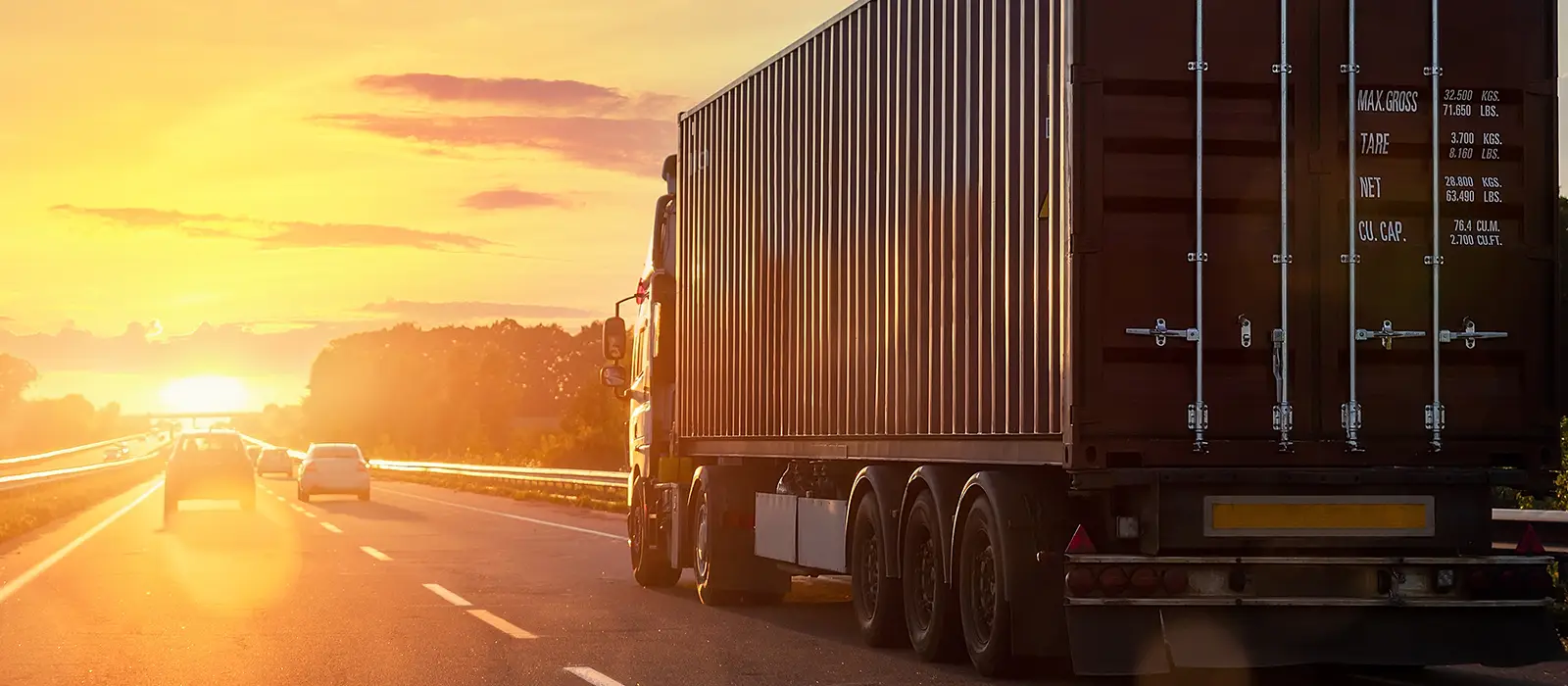You’re travelling down the Trans-Canada Highway, the engine purring, nothing but open road ahead of you. But way beneath the surface of your fuel gauge is a complex web of taxes.
If your business owns a large commercial vehicle that crosses into multiple provincial jurisdictions, it might have carbon tax registration and filing obligations. This includes construction companies hauling equipment across a territorial border, hauling grain across the prairie provinces, and sports teams bussing their members from one province to another.
Carbon tax can also impact your small business if it travels across provincial or territorial borders. And if you’re not aware of your obligations, you could face substantial penalties for non-compliance.
A recent webinar, called What you need to know to ensure you are carbon tax compliant, dives deep into the ins and outs of carbon tax and compliance. Here are some of the questions it covers:
What is carbon tax?
Canada’s carbon tax was federally implemented in April 2019. It’s levied on carbon emissions, with the aim of encouraging businesses (and individuals) to minimize their carbon footprint. There is a registration, filing, and remittance obligation for carbon tax for many businesses across different industries.
The provinces below follow the federal carbon pricing system:
- Alberta
- Saskatchewan
- Manitoba
- Ontario
- New Brunswick
- Nova Scotia
- Prince Edward Island
- Newfoundland and Labrador
The remaining provinces and territories have their own provincial equivalent carbon tax program.
Currently, 21 different types of fuel are subject to this tax.
Carbon tax is not like GST / HST. The supplier does not charge and collect carbon tax when fuel is sold. Rather, the supplier self-remits on what was sold. The carbon tax becomes embedded in the fuel price. There are few exemptions and limited ability to recover carbon tax paid or remitted in error.
Why are road carriers impacted?
Carbon tax is a tax on consumption. That’s a recording of fuel purchased, not fuel consumed. The reason road carriers and other types of carriers need to be registered is so the government can better understand where the fuel is being consumed.
Road carriers are particularly affected due to their substantial fuel consumption and the nature of their operations, which often involve crossing provincial borders. The tax is imposed on the consumption of fuel, meaning that your road carrier business needs to be meticulous about tracking fuel usage and understand the tax implications in different provinces.
Consider this example: You’re travelling in a commercial vehicle from British Columbia, through Alberta, and into Saskatchewan. You must register as a road carrier upon your first provincial crossing. In Alberta and Saskatchewan, you need to account for the fuel consumed in each province, subtracting the fuel purchased there. A positive balance means you owe carbon tax, while a negative balance results in a credit.
This process is necessary because B.C. does not participate in the federal carbon levy program. The critical factor is tracking the fuel without the federal carbon levy, which determines whether you owe a tax or receive a credit based on your fuel consumption and purchases across these provinces.
Road carriers are obligated to file quarterly returns unless they are also registered as a different type of person for carbon tax, such as an emitter, user, or distributor.
How do I know if I have to register?
To keep on top of reporting and filing obligations, you need to understand if you need to register your business.
The reporting obligations affect businesses that have exceptions and/or exemptions to account for carbon tax differently. These can be large emitters, users of fuel in manufacturing products, fuel distributors, and some businesses within the carrier group — like air, road, rail, and marine transport. These enterprises self-report carbon tax on fuel used and consumed in the federally taxed provinces, and some can issue or accept exemption certificates.
The registration and reporting obligations also apply to certain businesses with vehicles used in commercial transportation. This is outlined as:
- Hauling goods or individuals from one jurisdiction to another, and
- Has two axles and gross vehicle weight more than 11,797 kilograms (26,007 pounds), or
- Has three or more axles (regardless of weight), or
- When combined vehicle and trailer weight, has gross weight of 11,797 kilograms (26,007 pounds).
This definition is quite broad. Larger road, rail, air, and marine transportation businesses with activities that clearly fall into this definition are likely compliant with carbon tax reporting and filing requirements, but smaller businesses may not be aware their activities are considered commercial transportation. These businesses could be at risk of non-compliance.
As we are starting to see increased CRA audit activity on carbon tax for road carriers, it is important for affected businesses to be up to date on the required filings.
What are my reporting obligations?
Road carriers usually file quarterly with the CRA, while others file monthly. If you aren’t registered, you still need to file each month like everyone else.
The main difference is in reporting: registered carriers can offset debits with credits between provinces, leading to a net zero balance if they only operate in certain areas. Non-registered carriers must pay debits without getting any credits.
If you need to catch up on filings, the workload can be huge. After five years, for instance, you might need to complete many schedules per province. The CRA doesn’t backdate registrations, so if you register now for past periods, you will have to pay debits from those years without claiming credits, which could result in significant costs.
Here’s how to ensure compliance:
Assess your need for registration
Determine if your vehicles meet the criteria for registration. If they do, register promptly to avoid penalties.
Maintain accurate records
Keep detailed records of fuel purchases and consumption. This will help in filing accurate returns and avoiding discrepancies.
File returns on time
Whether you are required to file monthly or quarterly, ensure that returns are submitted on time to avoid late fees and interest charges.
Seek professional guidance
Consulting with tax professionals can simplify the compliance process. Experts can help you understand the regulations, manage filings, and address any outstanding issues.
Stay informed
The carbon tax rate is set to increase significantly, reaching $170 per tonne by 2030. Keeping up to date with changes in the tax rate and regulations will help you plan and budget effectively.
What happens if I don’t comply?
Failing to comply with carbon tax regulations may leave your business vulnerable to the following penalties:
- $2,000 for not registering
- Up to four percent of net amount owing for late filing
- Late filing interest
- Other penalties as applicable
We can help keep your business moving forward
The carbon tax is a crucial element of Canada's strategy to reduce carbon emissions, and road carriers play a vital role in this effort. By understanding the tax, registering if required, maintaining accurate records, and filing timely returns, road carriers can ensure compliance and avoid the financial pitfalls of non-compliance.
For personalized carbon tax guidance and support, reach out to our team of tax advisors. Please contact Jeff Harrison or Adam Amer.






